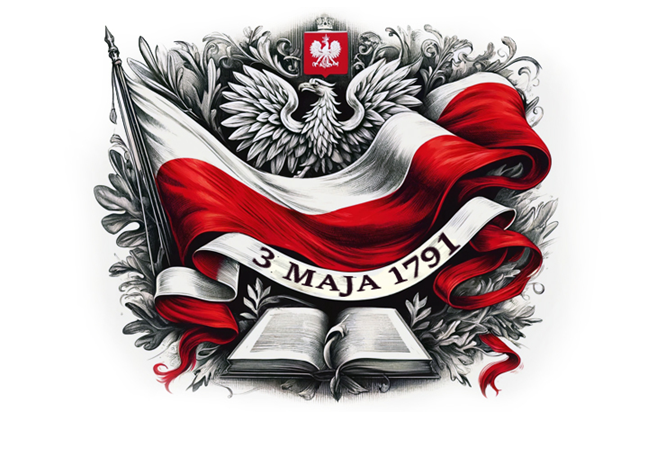Today marks the 233rd anniversary of the May 3 Constitution, which to this day remains one of the most important documents in the history of our country.
The May 3 Constitution, enacted in 1791, is a milestone in Polish history and one of the most important events in the history of European liberalism. It was the first constitution in Europe and the second in the world to be enacted legally and democratically. Its introduction was intended to reform the political system of the Republic and strengthen its position in the face of increasing pressure from neighbouring powers.
The May 3 Constitution was passed by the National Assembly, convened by King Stanislaw August Poniatowski, who wanted to carry out reforms aimed at rebuilding and modernizing the Republic. It introduced many provisions related to the equality of citizens, the reduction of royal power in favor of parliament, and economic and social reforms.
One of the most important aspects of the May 3 Constitution was the provision of civil rights, such as freedom of speech, assembly and religion, but above all, it should be remembered that it sought to abolish the liberum veto, which paralyzed the work of parliament, and to introduce the principles of constitutional monarchy, where the king’s power was limited by statute.
However, the constitution met with opposition both from the nobility, who feared the loss of their privileges, and from Russia and Prussia, who saw it as a threat to their interests in the region. Nevertheless, it was passed and proclaimed on May 3, 1791.
Unfortunately, it was short-lived. Already a year later, as a result of Russia’s invasion of Poland and the betrayal of some of the Polish nobility, the Constitution was suspended and the Republic came under the control of foreign powers. This was the first partition of Poland (1792) , in which Russia, Austria and Prussia divided the territory of the Republic, the beginning of a process that led to further partitions in 1793 and 1795. As a result, Poland as a sovereign state disappeared from the map of Europe for more than a century.
The partitions had enormous consequences for Polish society. Poland lost not only its political independence, but also its national identity, culture and language, suppressed by the partitioners. Poles were forced to fight for their rights and preserve their identity under conditions of repression and assimilation.
Despite the difficulties, the partition period was also a time of struggle for independence and the fight to preserve Polishness. Poles undertook numerous independence uprisings, such as the Kosciuszko and November insurrections, and carried out cultural and educational activities aimed at strengthening national identity.
The period of partitions left lasting traces in Polish history and in the national consciousness of Poles, becoming a symbol of the struggle for Polish freedom and independence. Probably for this reason, the May 3 Constitution remains a symbol of the fighting spirit for freedom, equality and sovereignty of the Polish people.
The day the Constitution of May 3 was adopted, remains an important day in Polish history. Today’s anniversary, in turn, is a time for us to remember our ancestors’ aspirations for freedom and justice, and to continue their work by nurturing democratic values and civil rights in our country. The May 3 Constitution reminds us of our common history and heritage, which we should cherish and protect for future generations.

